Vuelta a Espana: Quintana defends peloton's slow march across Basque Country
Movistar saving energy to defend race lead against rivals
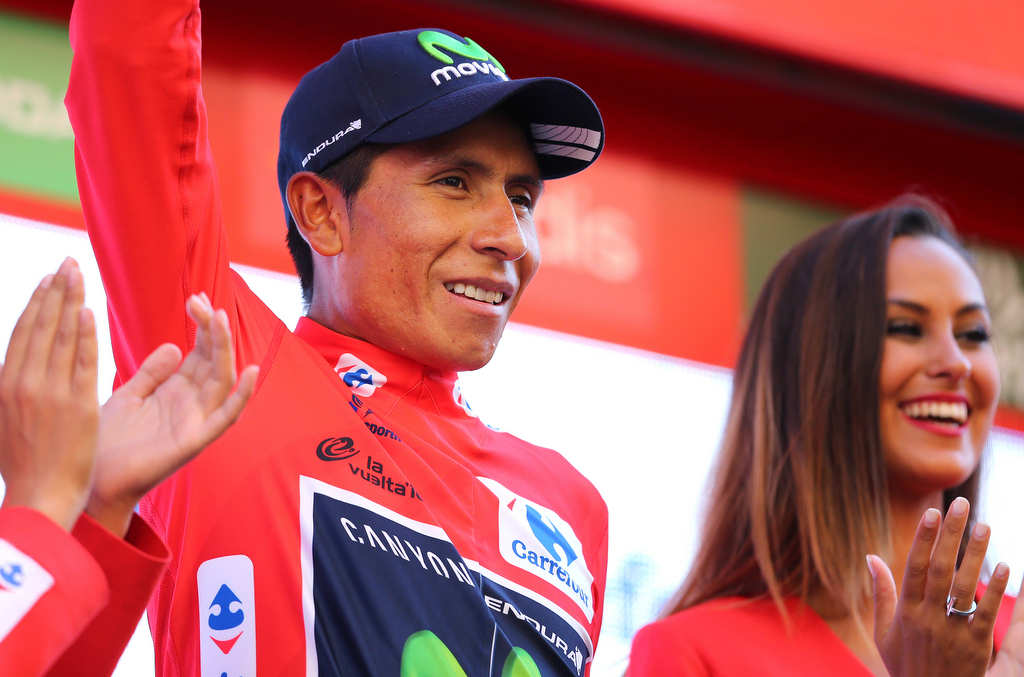
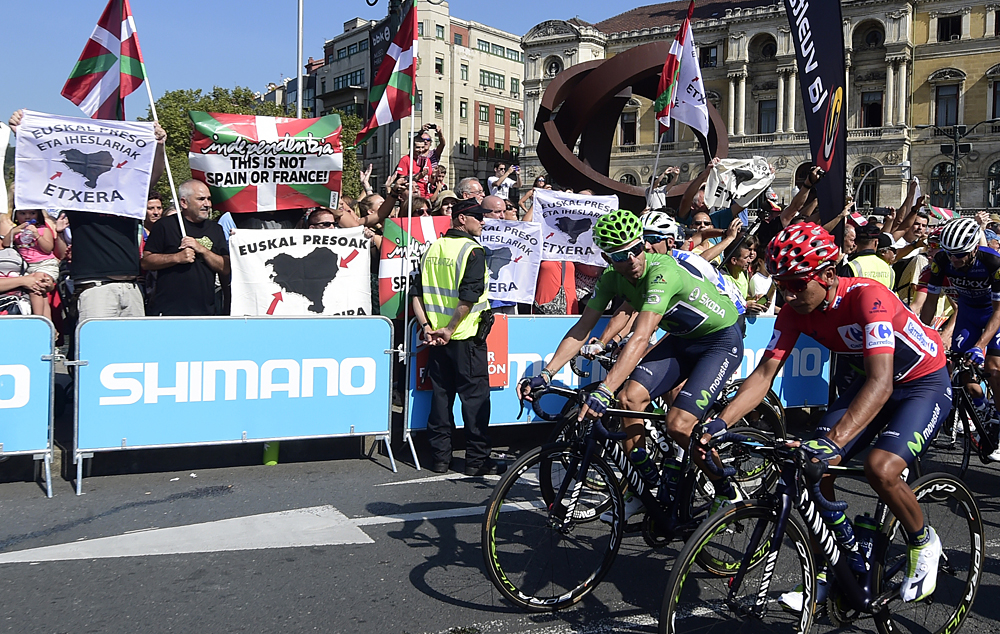
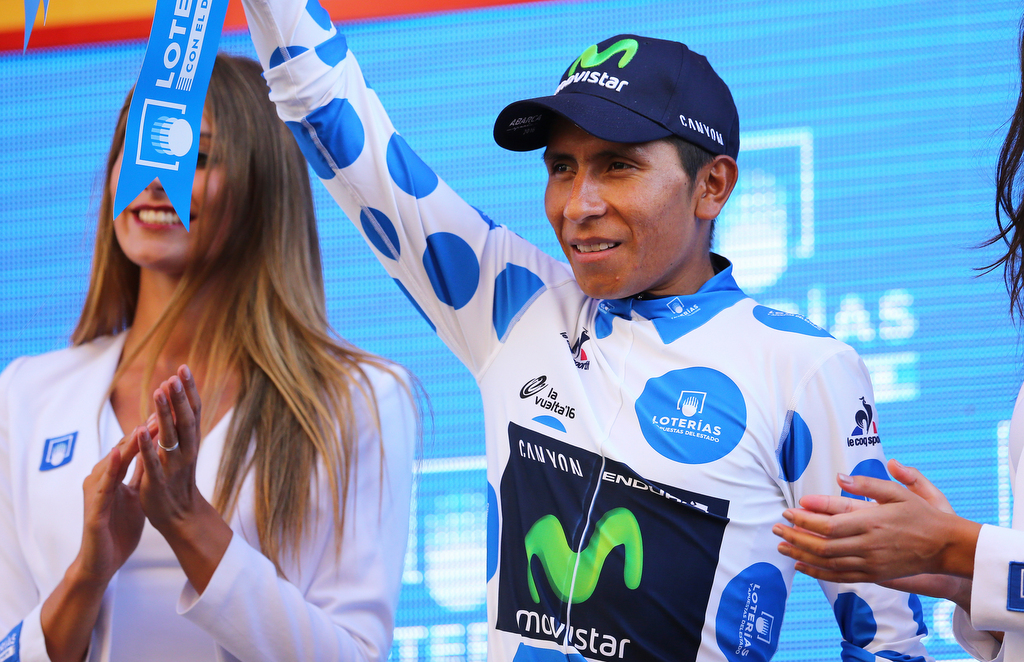
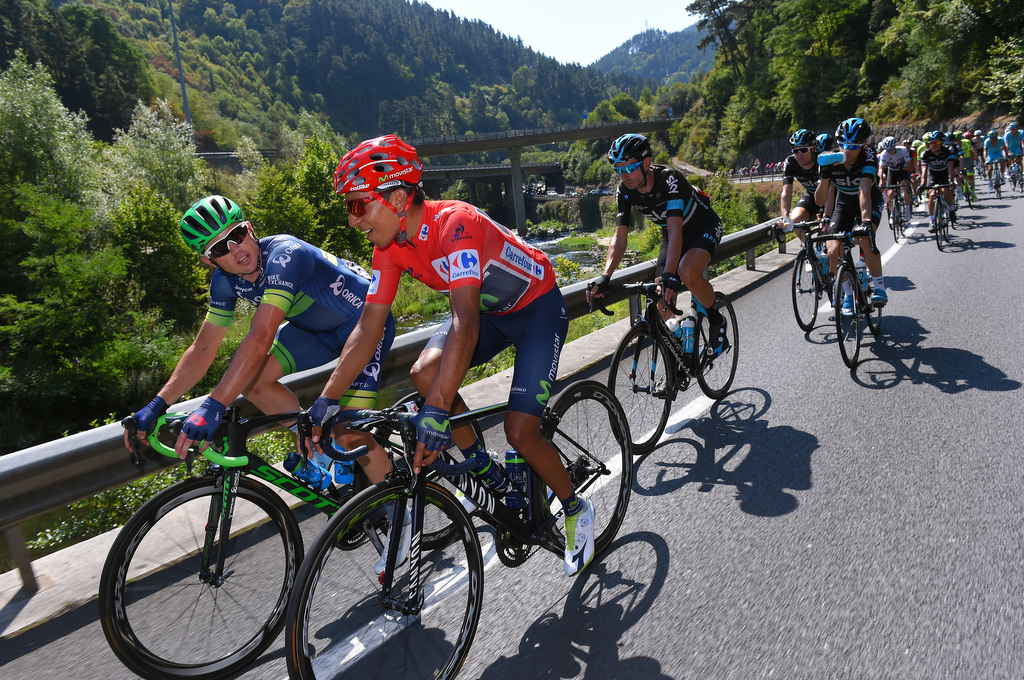
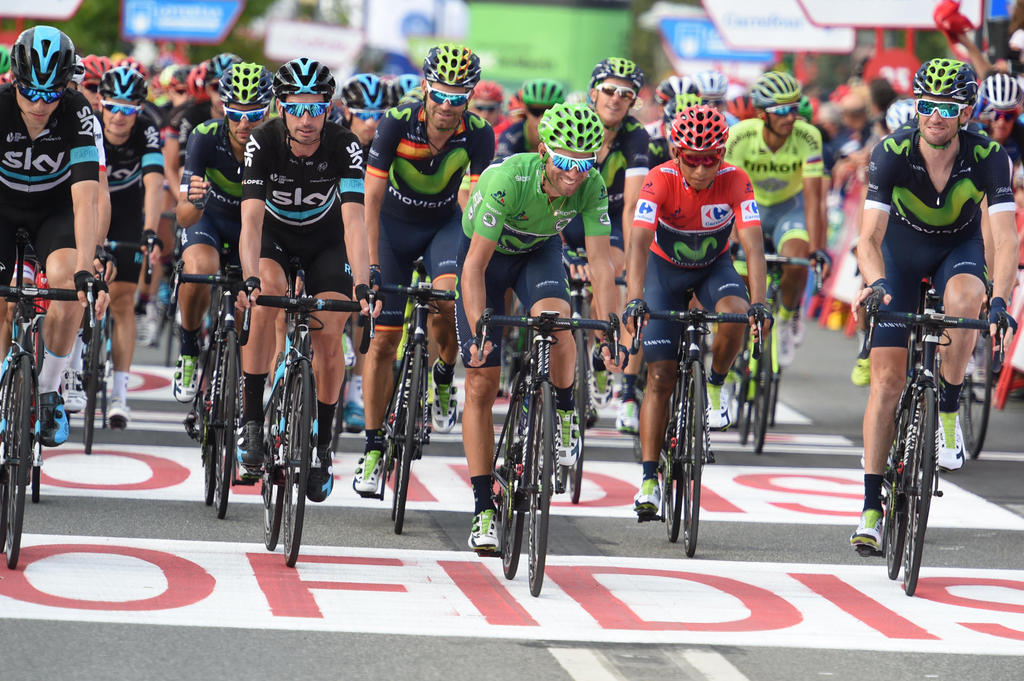
Vuelta a España leader Nairo Quintana (Movistar) says he is fully expecting all out attacks from at least some of his rivals in the upcoming two Pyrenean stages, but that "at the very least, I don't want to lose time to [arch-rival Chris] Froome (Sky)."
Speaking after the long and tediously uneventful trek by the peloton across the Basque Country and into Movistar's home region of Navarre, the Colombian identified the stage to the Aubisque as the most important of the two days the Vuelta will spend in the high mountains of the Pyrenees.
"It's going to be a very big day," Quintana, who leads Froome by a scant 54 seconds, told reporters.
"Many teams are going to be challenging, but finally it's those GC riders who will be on the attack who are going to be the most dangerous and the ones I'll have to watch the closest. At the very least, my aim is not to lose time on Froome."
The massive time gap between the peloton and the breakaway at the finish was slated by Spanish state broadcasting channel TVE commentator Carlos de Andres and saw one major Spanish radio channel quit its broadcasting of the final segment of the race in a symbolic protest. But Quintana argued that after a hard first two weeks to the Vuelta "riders are very tired".
"Our strategy was to let a break go with riders who'd lost so much time that we didn't need to work so much, because tomorrow I'll need all the riders I can get to protect me on the Aubisque."
"Today there were more than 200 kilometres in the stage and more than 3,500 metres of vertical climbing for everybody. It was no walk in the park."
The latest race content, interviews, features, reviews and expert buying guides, direct to your inbox!
Video Highlights
Alasdair Fotheringham has been reporting on cycling since 1991. He has covered every Tour de France since 1992 bar one, as well as numerous other bike races of all shapes and sizes, ranging from the Olympic Games in 2008 to the now sadly defunct Subida a Urkiola hill climb in Spain. As well as working for Cyclingnews, he has also written for The Independent, The Guardian, ProCycling, The Express and Reuters.
